Socio-Political Order and Security in the Arab World: From Regime Security to Public Security 1st Edition Andreas
Krieg (Auth.)
Visit to download the full and correct content document: https://textbookfull.com/product/socio-political-order-and-security-in-the-arab-world-fro m-regime-security-to-public-security-1st-edition-andreas-krieg-auth/
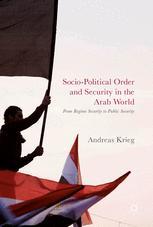
More products digital (pdf, epub, mobi) instant download maybe you interests ...

The power triangle : military, security, and politics in regime change 1st Edition Kandil
https://textbookfull.com/product/the-power-triangle-militarysecurity-and-politics-in-regime-change-1st-edition-kandil/
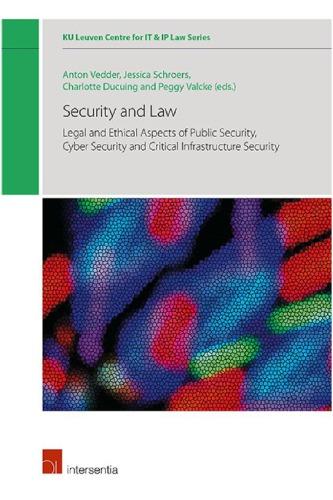
Security And Law: Legal And Ethical Aspects Of Public Security, Cyber Security And Critical Infrastructure Security Anton Vedder
https://textbookfull.com/product/security-and-law-legal-andethical-aspects-of-public-security-cyber-security-and-criticalinfrastructure-security-anton-vedder/
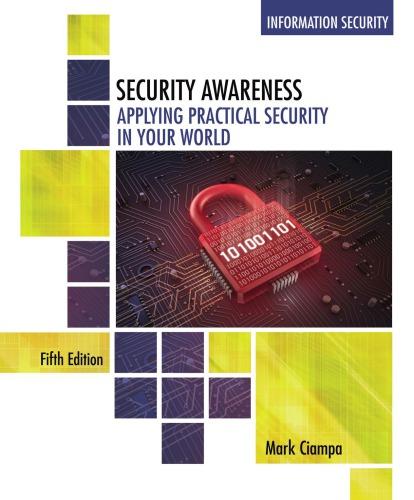
Security Awareness: Applying Practical Security in Your World 5th Edition Mark Ciampa
https://textbookfull.com/product/security-awareness-applyingpractical-security-in-your-world-5th-edition-mark-ciampa/
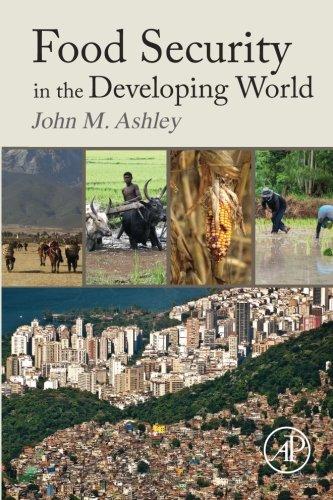
Food security in the developing world 1st Edition
Ashley
https://textbookfull.com/product/food-security-in-the-developingworld-1st-edition-ashley/
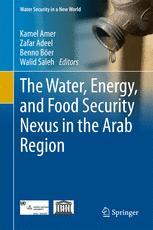
The Water Energy and Food Security Nexus in the Arab Region 1st Edition Kamel Amer
https://textbookfull.com/product/the-water-energy-and-foodsecurity-nexus-in-the-arab-region-1st-edition-kamel-amer/
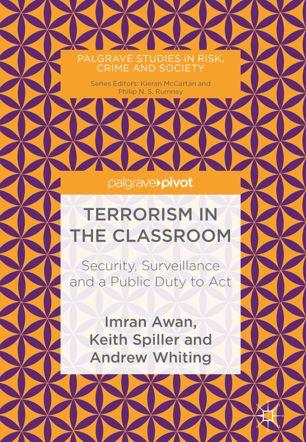
Terrorism in the Classroom: Security, Surveillance and a Public Duty to Act Imran Awan
https://textbookfull.com/product/terrorism-in-the-classroomsecurity-surveillance-and-a-public-duty-to-act-imran-awan/

Security Automation with Ansible 2 Leverage Ansible 2 to automate complex security tasks like application security network security and malware analysis 1st Edition Madhu Akula
https://textbookfull.com/product/security-automation-withansible-2-leverage-ansible-2-to-automate-complex-security-taskslike-application-security-network-security-and-malwareanalysis-1st-edition-madhu-akula/
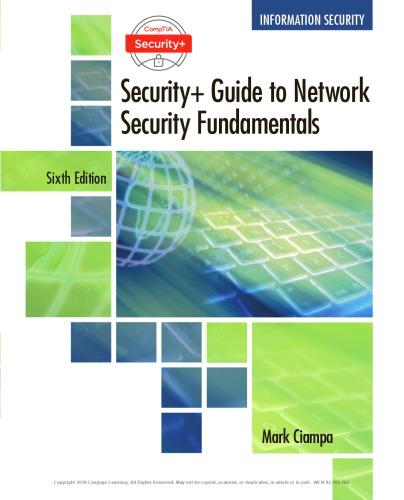
Comptia Security Guide to Network Security Fundamentals
Mark Ciampa
https://textbookfull.com/product/comptia-security-guide-tonetwork-security-fundamentals-mark-ciampa/
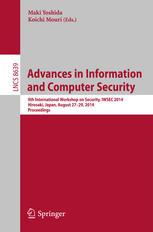
Advances in Information and Computer Security 9th
International Workshop on Security IWSEC 2014 Hirosaki Japan August 27 29 2014 Proceedings 1st Edition Maki Yoshida
https://textbookfull.com/product/advances-in-information-andcomputer-security-9th-international-workshop-on-securityiwsec-2014-hirosaki-japan-august-27-29-2014-proceedings-1stedition-maki-yoshida/
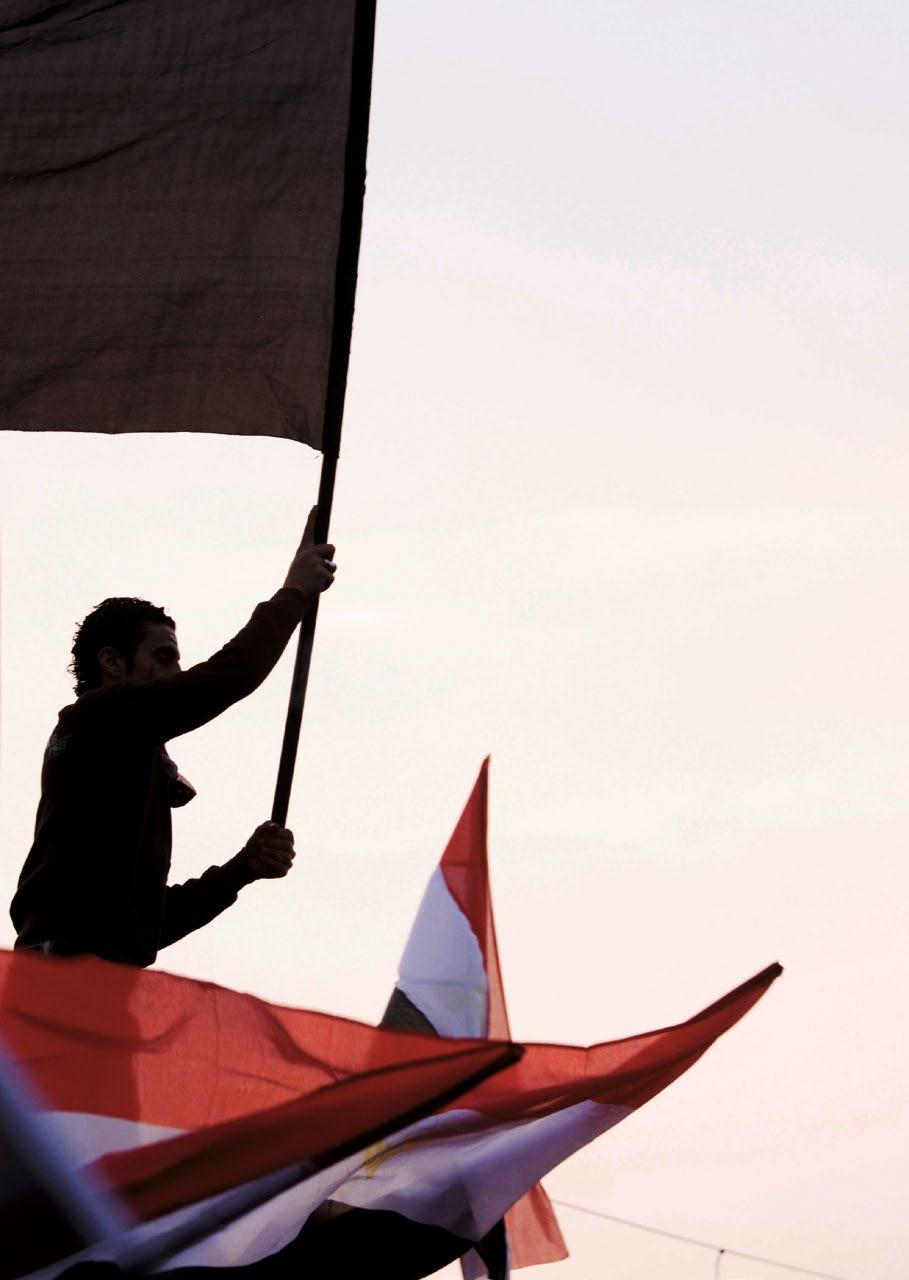
Socio-Political Order and Security in the Arab World
From Regime Security to Public Security
Socio-Political Order and Security in the Arab World
Andreas Krieg
Socio-Political Order and Security in the Arab World
From Regime Security to Public Security
Andreas Krieg War & Defence Studies
King’s College London
London, United Kingdom
ISBN 978-3-319-52242-5 ISBN 978-3-319-52243-2 (eBook)
DOI 10.1007/978-3-319-52243-2
Library of Congress Control Number: 2016963567
© The Editor(s) (if applicable) and The Author(s) 2017
This work is subject to copyright. All rights are solely and exclusively licensed by the Publisher, whether the whole or part of the material is concerned, specifically the rights of translation, reprinting, reuse of illustrations, recitation, broadcasting, reproduction on microfilms or in any other physical way, and transmission or information storage and retrieval, electronic adaptation, computer software, or by similar or dissimilar methodology now known or hereafter developed.
The use of general descriptive names, registered names, trademarks, service marks, etc. in this publication does not imply, even in the absence of a specific statement, that such names are exempt from the relevant protective laws and regulations and therefore free for general use. The publisher, the authors and the editors are safe to assume that the advice and information in this book are believed to be true and accurate at the date of publication. Neither the publisher nor the authors or the editors give a warranty, express or implied, with respect to the material contained herein or for any errors or omissions that may have been made. The publisher remains neutral with regard to jurisdictional claims in published maps and institutional affiliations.
Cover image © Oleg Zabielin / Alamy Stock Photo
Printed on acid-free paper
This Palgrave Macmillan imprint is published by Springer Nature
The registered company is Springer International Publishing AG
The registered company address is: Gewerbestrasse 11, 6330 Cham, Switzerland
A cknowledgements
The idea for this book was inspired by my travels through a war-torn region in the aftermath of the Arab Spring. Whether chatting to youth activists in Marrakesh in 2011, standing on the hills of the Golan Heights observing regime and rebel forces exchanging fire in 2013, interviewing Hezbollah affiliates in southern Lebanon in early 2014, driving along the ISIS frontline in Mahmour, Iraq, on the back of a Peshmerga pick-up truck in late 2014 or walking across a highly barricaded Tahrir Square in 2015, it had dawned on me that the developments that were incited by the self-immolation of a Tunisian vendor in 2010 had changed the Arab World more fundamentally than arguably any event since the collapse of the Ottoman Empire. A lot had been written upon the Arab Revolutions in the meantime; few, however, looked at the Arab Spring more deeply and conceptually.
My secondment to the Qatari Joint Command and Staff College since 2013 has provided me with the unique opportunity to embrace myself in the Arab psyche and mentality not just through the daily interaction with military officers from the GCC but also through constant academic exchange at conferences and talks in Doha’s many universities and thinktanks. A special thanks goes to the staff of Brookings Doha and the Arab Center for Research and Policy Studies who have invited me to many of their conferences and roundtables. Further, the proximity to Qatari government officials and foreign diplomatic dignitaries has allowed me to take a look behind the scenes of the highly complex developments underway in the region. My gratitude goes particularly to my friend Jaber Essa Al Khulaifi and the political officers from the German and Canadian
embassy in Doha. Also, the many formal and informal interviewees across the region without whom this book would not have been possible deserve credit. In particular, my friends Anas El Gomati and Dr H.E. Mohammad Shtayyeh have been indispensable to opening my eyes in many hours of discussion to essential nuances and details I would have otherwise missed.
Of my colleagues at the Defence Studies Department (DSD) of King’s I would like to express my thanks to Dr Tim Bird for his constant support and patience in reviewing parts of this book. Dr Jean-Marc Rickli and Dr David Roberts have repeatedly provided me with invaluable insights and critical feedback on the conceptual foundation of this book. I am also particularly grateful to Dr Ibrahim Fraihait whose excellent book Unfinished Revolutions and review comments have helped me prepare the manuscript for publishing.
Last but not least, I would like to thank my family for their constant and unconditional support. Above all, I would like to say thank you to my lovely wife, Zohal, who did not only always believe in me but also listened patiently to my constant lectures over socio-politics and security in the region.
Doha, 19 September 2016
Fig. 4.1
CHAPTER 1
Introduction
At the time of writing, five years after the revolutions of the Arab Spring, euphoria has widely given way to a sobering disillusionment that sociopolitical affairs in the Arab World have not fundamentally changed. Some go that far as to claim that the counterrevolutionaries have won, as many of the old guard remain in power. Nonetheless, change in the Arab World is running at breakneck pace even if in contradictory directions1—change that is irreversible in the socio-political dimension. The achievements of the Arab Spring might not be as tangible as many hoped in 2011, but it has deeply unsettled the relationships between rulers and the ruled that had prevailed throughout the twentieth century. While socio-political disintegration has not yet resulted in effective reintegration, the Arab Spring has demonstrated that something has fundamentally changed in the way individuals in the region perceive effective governance and leadership. For political and social scientists the revolutions of the so-called Arab Spring have become fascinating case studies to re-examine socio-political integration as well as the relationship between the individual and the state in the Arab World. Few books, however, have looked systematically at changing socio-political relations in the Arab World2 since the 1990s, mostly looking at the Arab Spring as unpredictable events in isolation from regional socio-political developments in the preceding decades.3 A few analysts predicted that the mass demonstrations in Tunisia in late 2010 would be the trigger for one of the most extensive upheavals in modern
© The Author(s) 2017
A. Krieg, Socio-Political Order and Security in the Arab World, DOI 10.1007/978-3-319-52243-2_1
Arab history—an upheaval that was rooted in the growing regional divergence between society and state since the 1990s. Negative macroeconomic developments, an increase of coercive state repression, political and military intervention by external powers as well as a growing curtailment of civil liberties created sentiments among Arabs that the state was unfit to provide for public security.
So far, the literature has not looked at the Arab Spring comprehensively through the prism of security. This book looks at the Arab Spring and changing socio-political relations in relation to individual security. It argues that in essence the Arab Spring was the eruption of simmering public dissidence long suppressed by the coercive apparatuses of authoritarian regimes—dissidence that was rooted in individual and group sentiments of insecurity in various dimensions.
In so doing, the book breaks with the prevalent narratives that have traditionally shaped the understanding of the Arab World in the literature and among Western policymakers. By default these narratives are Western-centric, trying to make sense of the nature of security in the Arab World through prisms that disregard the distinctiveness of the region. The debates about security in the Arab World are prejudiced by the Western experience of socio-political organization as well as the idea that regional socio-politics and security are matters to be understood in reference to the state. Thus, the fundamental weaknesses of the narratives that have informed the approach of the literature and Western policymakers to the region are twofold: first, they are inherently state-centric; and, second, they are too preoccupied with Western notions of liberal democracy.
In reference to the Arab Spring, the state-centric nature of these narratives has failed to adequately predict the socio-political upheavals of 2011, the counterrevolutions and responses until today. The normative and prescriptive character of liberal determinism undermined the ability to identify the root causes of the revolutions and thereby ultimately potential solutions. State-centrism and liberal determinism are Western paradigms of how the world works that fail to account for the socio-political distinctiveness of the Arab World. They do not do justice to the complex nature of security in the region that transcends the various socio-political levels from the individual over the tribe to the transnational group.
Traditionally, the Arab World has been perceived in the literature and among policymakers as a complex of authoritarian regimes whose sense of security is determined exclusively by their relationship to each other.4 That is to say that regional security has been a matter of international
rather than internal politics as regimes were regarded as capable of managing dissidence through a mix of accommodation and coercion. A statecentric definition of security as national or international security has been deemed sufficient to understand the security dynamics of a region where the individual was believed to be subjected to the state’s carrot and stick in such a way that the individual’s constructive participation in sociopolitical affairs was made redundant. Being under the impression of the narrative that the individual in the Arab World had been both coerced and lured into allowing the regime to monopolize socio-politics, the literature and Western policymakers were convinced that authoritarianism could maintain regional security. The myth of authoritarian stability, as Gause calls it,5 was rooted in the self-asserted belief that security was maintained by states for states. This myth made it even harder for Western analysts to comprehend the pace with which revolutions spread in 2011 and authoritarian leaders fell. Old certainties, personified in the rule of dictators entrenched for decades on end, were shattered while the basic prisms through which socio-political order and security was perceived in the Arab World remained widely the same. Few had predicted that the authoritarian regimes of the Arab World could collapse in the face of mass protest as they had proven to be resilient for decades. When individuals took to the streets in Tunisia, many expected the protests to take the usual route— namely, collapse under the pressure of the regime’s repressive security sector. However, this time dissidence led to widespread disintegration of an old socio-political order that had prevailed for decades, confronting the region and the world with the question of how to restore socio-political order and security in the Arab World.
The existing Western narratives would provide a deterministic and generic answer to the question of how to restore socio-political order and security: promoting liberal values and democracy. Here again, the book departs from the most prominent narratives. This book considers the root causes of the Arab Spring to be much more fundamental than liberal determinists make it out to be. Essentially this book holds that the Arab Spring was for most Arabs not primarily about achieving liberal democracy but about individual security or the lack thereof. The widespread axiomatic assumption in the literature and in policymaking circles that liberal democracy as a supposedly successful model of socio-political organization in the West could be exported to the Arab World to empower dissidents has been flawed. Liberal determinism neither manages to adequately explain the developments in the Arab World in recent decades nor
provides a solution to the current regional state of socio-political disorder and insecurity.6 In fact, this book demonstrates that a preoccupation with the export of liberal values and democracy misses the more fundamental grievance in the Arab World, namely, the absence of individual security—a grievance for which liberal democracy, particularly in the regional context, might not necessarily be the panacea.
Moving beyond state-centrism and liberal determinism, this book looks at the nexus of socio-politics and security in the Arab World without getting bogged down in the dominant reductionist narratives in the literature and Western policymaking. In an effort to understand the socio-political developments that have been ongoing in the Arab World since the 1990s and culminated in the Arab Spring, this books moves beyond liberal deterministic assumptions that the promotion of liberal values and democracy are the panacea for the structural problems of the region. Instead, this book advances the case that grievances related to individual security needs are at the heart of regional insecurity and instability—individual security that although related to the individual’s socio-political context might not necessarily be best provided for by liberal democracy. It is not the intention of this book to resort to a prescriptive agenda promoting a particular socio-political order. This book merely links the resilience of a sociopolitical order to its ability to provide individual security inclusively. It is important to develop a thorough understanding of the nexus between socio-politics and security in the Arab World in order to understand the socio-political upheavals of the Arab Spring and the continuing regional disintegration.
Thereby, the established security foci and narratives have to be fundamentally altered moving beyond the state as the only referent object of security and beyond liberal determinism as the normative angle through which to construct a strategy moving forward. At the centre of the nexus between socio-politics and security in the Arab World stands the individual who has emancipated himself from the conventional constraints of the state and the regime. As will be explained in this book, the rise of the public sphere in the Arab World facilitated by the influx of new broadcasting and social media has provided the individual with a platform to express himself independently from the interference or constraints of the regime. Throughout the 1990s, individuals have expressed their public grievances in a pan-Arab public sphere. In this public sphere, individuals formed public opinion and mobilized virtual dissidence outside the control of the coercive apparatuses of states and regimes. These forms of individual and societal dissi -
dence were rooted in public grievances related to unfulfilled individual security needs. Therefore, as will be discussed, individual security has to be seen as the primary lens through which to assess the sustainability of socio-political order in the region.
The concept of security in the Arab World needs to be fundamentally re-examined. Not only has the debate scarcely evolved in recent decades, but the Arab Spring and the consequent socio-political disintegration of Libya, Syria, Iraq, Yemen and parts of Egypt undermined traditional conceptual approaches to security in the region.
In short, a wholesale re-evaluation of the concept in the Arab World is required, not only in terms of the referent object of security but also in terms of who or what mechanisms provide this security, particularly when conventional mechanisms of security provision such as the state appear increasingly dysfunctional across the region. Security in the Arab World, then, is at the heart of every debate about the future of a region of vital geo-strategic importance.
The core argument of this book holds that both scholarship and policymakers must redefine their approach to security in the Arab World if they are to adequately grasp the region’s underlying insecurities. Instead of divorcing public security from regime security, security needs to be defined inclusively within a socio-political context in which the security of the state is synonymous with the security of those individuals constituting society. Individual and state security need to be understood as essentially two sides of the same coin.
In the future, security in the region has to be conceived as the consensual sum of individual security needs within a communal context vis-à-vis a patron, such as the state, whose raison d’être exclusively revolves around catering for these individual security needs inclusively. The consequence of this argument is that when patrons, such as states, fail to provide for individual security, individuals left unprotected will seek alternative security providers to fill the void—a reality that leads to socio-political disintegration and instability. This is how this book’s argument explains the current socio-political disintegration in the Arab World following the chaotic insecurity left behind by the Arab Spring. As a process set in motion by individual sentiments of insecurity, the Arab Spring brought with it radical socio-political reformation that allowed for some individuals and their communities to accept alternative patrons as quasi-states to provide security for them. It seems that the provision of particularly physical and economic security is the key dimension for individuals to either accept or dismiss a patron.
Using Social Contract theory as a framework to conceptualize the nexus between socio-politics and security, this book’s argument links the legitimacy of a socio-political order to the ability of this order to cater for individual security needs inclusively. However, this book does not set out to suggest any form of socio-political organization. It merely links the sustainability of a socio-political order to its ability to provide security inclusively. That is to say this book resists the prevalent temptations to simply prescribe liberal democracy as a remedy for a socio-political malady whose roots are found in a religio-cultural context dissimilar to the West. The relationship between the leader and the community, between the patron and his protégés, the state and its citizens, the king and his subjects or the dictator and his people is one that has been defined by different socio-historic parameters than in the West, as will be discussed later on in the book. Nonetheless, like in the West, the key trigger for socio-political integration in the Arab World is the individual’s need for security and the political implications that flow from this—a key tenet of Social Contract theory that will be employed in this book as the conceptual framework to define the nexus between socio-politics and security.
In order for the Arab World to achieve sustainable public security, a new socio-political narrative has to be developed—one that is distinct to the region, its religio-cultural as well as socio-political heritage. The experiments of merely importing concepts, frameworks and narratives from the West to the region have failed in the past and will likely continue to fail in the future. In fact, it would be possible to confidently argue that the current dissolution of the nation state system in the Arab World is testimony to the failed attempt to impose an external socio-political framework on a region that has historically been defined by the interaction of the local and the transnational level.
The rejection of liberal determinism will attract criticism from those saying that this form of cultural relativism is Orientalist, namely Western arrogance holding that Arabs might not be ready to embrace liberal democracy. This criticism usually comes from those intellectual elites in the Arab World that have their own instrumental reasons to replicate Western socio-political organization in the region. Thereby these elites deny the desires and needs of the majority of individuals in the region who might not necessarily support the idea of a liberal democratic project. As Fraihat points out in reflection on the triggers and outcomes of the Arab revolutions
Democracy is certainly one option, but not the only one. Even if democracy were the goal, would it be Western democracy, Turkish-Islamic democracy, an indigenous Arab version of democracy, or something else entirely?7
Rather than contemplating about the form of socio-political organization, this book looks at the outcome of socio-political organization in terms of its ability to cater for inclusive security. It is not the walk to the ballot box that determines the virtue of a socio-political system but, following Social Contract theory, its ability to cater for individual security.
R edefining the C on Cept of S eCuRity
It is an axiomatic principle of the human condition that individuals seek a form of security, both individually and collectively. Thereby, the maxim of social integration is the individual’s need for security that it hopes to find within the collective security mechanisms of the community.
From this simplistic base, groups of communities evolved and with them so did the literature on concepts of security. Culminating throughout the past century as the complexity of interaction inexorably and exponentially increased, security became a concept almost universally centred upon states as not just providers of security but also the primary referent object for security. Throughout much of the twentieth century, the individual was almost forgotten, as the security debate turned its focus on the state within the international system.
To this end, one of the principal goals of this book is to divert understanding of security away from narrow Western-centric narratives towards a broader security narrative based on individual security—a narrative firmly rooted in the singular context of the Arab experience. This book builds on a small but growing literature discussing the reconceptualization of individual security in the developing world.8 Ayoob’s subaltern Realist definition of security in the Third World is among the most prominent antecedents of this book. Ayoob argues that the state-centric conceptualization of security fails to account for the fact that in the developing world the state is not the guarantor of security but the actual threat to individual security.9 For Ayoob it is socio-political underdevelopment that is the main threat to security in the developing world10—a claim that this book adopts and extends with a particular focus on the Arab World as a region in socio-political transition. In so doing, this book will emancipate itself from the state as the referent object of security, which remains the
case even in Ayoob’s subaltern Realist approach, and exclusively look at the individual as the referent object for security within a socio-political context.
Employing the Oxford Dictionary’s definition of security as ‘the state of feeling safe, stable, and free from fear or anxiety’,11 security then becomes a human sentiment. This human sentiment reflects on the macro level of human association as well, shaping the sense of security of communities, states and transnational organizations. Therefore, it holds that security of associations cannot or should not be seen in isolation of those individuals constituting these associations. The assumption that states or nations have separate senses of security from the individuals that bring these states or nations into existence becomes thus a non sequitur of a concept. Instead, it would be more useful to define security of associations as being constituted by individual security needs.
Since the 1990s, the International Relations literature has tried to extend the traditional concept of security to incorporate individual security needs under the umbrella of human security.12 Most of the discussions of security, however, emerge in the sub-field of Strategic Studies, which takes by definition a more macro-level approach to understanding security. Nonetheless, in the era of humanitarian intervention, liberal and cosmopolitan approaches to understanding security have appeared on the margins of a scholarly security debate that redirects the focus from the state as the referent object of security to the individual.13 Thus, International Relations literature has extended the reductionist debate on security from the Realist notion of the state’s freedom from threat in an anarchical international system14 to a more individual-centric debate on security. Kenneth Booth’s 1991 definition of security is a case in point, defining security as the freeing of people (as individuals and groups) from those physical and human constraints which stop them carrying out what they would freely choose to do. War and the threat of war is one of those constraints, together with poverty, poor education, political oppression.15
In the aftermath of the Cold War, the pursuit of freedom from threat16 has not become any easier as the global system has arguably become even more anarchic in the multipolar world of the twenty-first century. No single authority can regulate security for individuals, communities and organizations alike in the new transnational sphere.17 The reason for this perception of increased insecurity in the post-Cold War era can be found in the overall
decline of the state’s ability as the primary socio-political building block of the international system to provide security. Being challenged in its status as the only legitimate authority to conduct international relations by supra and non-state actors, the global system has become more transnational than international in nature. In this transnational system a variety of different non-state actors compete to achieve their individual or organizational interests. Perceiving the state as an organization formed by individuals to enhance their security, the increasing impotence of this traditional security provider leaves individuals increasingly exposed to the insecurities of the global transnational system.18 Therefore, as the individual increasingly exists in a transnational sphere with limited state control, this book looks at security not in reference to the state but in reference to the individual in the global transnational system. Within this conceptualization, the state rather than being the referent object is one of the primary providers of individual security in the transnational system.
Moreover, the character of security is usually defined not just in reference to the object of security but also in reference to the type of threat from which to protect the referent object. From a rather statist approach to security, Buzan identifies five dimensions of security based on the nature of threat a referent object might be confronted with: military, political, economic, societal and environmental.19 Although accounting for the fact that confronted with these threats one cannot divorce state security from society’s security, being the sum of individual security needs,20 Buzan’s dimensions of security, later adopted by other scholars as well,21 appear to take a macro-level approach to security, disregarding individual security needs on the micro level.
The same is true for scholarship looking at security in the Arab World in general—the micro level of individual security has never been a great concern as it was believed to be overwhelmed by the macro-level assumed primacy of the state’s security. Both empirical evidence and conceptual academic debates seem to have reinforced the idea that security in the Arab World is an autocratic undertaking focusing on eliminating any form of external threat to the sovereignty and territorial integrity of the state while at the same time ensuring the survival of the regime internally. Consequently, national security policies in the region have narrowly focused on state and regime security. Academic security discourses in reference to the Arab World have been widely state-centric as well. In the academic literature, concepts of individual or societal security have been marginalized in favour of state security. In a region of autocracies
A. KRIEG
reigning with little or no direct participation of society, a focus on individual or societal security has been considered redundant.22 The resilience of authoritarian regimes backed by their coercive security sectors left many under the illusion that the individual—even if undergoing a process of liberalization and emancipation through the increased connectedness of a global public sphere—would not be able to break the authoritarian barriers erected around it. Consequently, the Arab Spring was not supposed to happen as scholars, analysts and policymakers held the firm belief that the individual lacked the ability to organize socio-politically without the approval of the regime. Individual dissidence, although increasingly visible and vocal throughout the 2000s, was never regarded as committed enough to break the psychological barrier of fear regimes that security providers had set up.
However, against all odds the Arab Spring was the expression of a development that had long been simmering in the shadow of authoritarianism: the individual socio-political emancipation in the public sphere. Looking at the reality on the ground over the past two decades, one has to note that individuals have repeatedly made the effort to publicly express their security desires on what has been metaphorically called the Arab Street (Sharia al-Arabiy)23—a term often used in a derogative way by Westerners to describe Arab public opinion as irrational and emotional.24 The term ‘Arab public sphere’ will be used in this book instead, as it has less negative connotations and provides a more comprehensive concept that will be discussed in Chap. 4 of the book.
With the evolution of the media from satellite to social media, sociopolitical discourse in the Arab World has been removed from the physical locus of the street to the virtual locus of a more extensive transnational public sphere. The Arab public sphere as an inclusive and accessible platform of intra-social dialogue as well as dialogue between society and regime has grown into an essential realm in the Arab World over the 1990s where the individual could express public grievances and mobilize dissidence across a wider transnational spectrum. The discourse of the Arab public sphere, motivated, educated and driven by a media evolution, transcended from the virtual public sphere to the physical locus of the street during the Arab Spring.
Since the late 1990s, security in the Arab World has been expressed on the micro level in reference to individual sentiments of feeling safe, stable and free from fear or anxiety within four security dimensions of physical, economic, societal and political security. The public grievances
of individuals in the Arab World, which for most scholars, analysts and policymakers have only become apparent during the protests of the Arab Spring, had long been subjects of public debate in an increasingly digital and interactive public sphere. Before spilling from the virtual public sphere to the streets in the Arab World, individual security concerns had been constructed through transnational debate and interaction across the boundaries of individual states. Recurring patterns of common public security concerns have emerged across the Arab World, which are framed within the economic, physical, societal and political dimension. Thereby, the security debate in this book embraces the more socio-psychological needs for liberal democracy, prosperity and freedom from corruption—all concepts that have been used in the overall empirical accounts dealing with the Arab Spring in the literature. Security then is a concept that is far more general than the freedom from physical threat.
Examining the narrative expressed in the Arab public sphere since the end of the 1990s, the loss of Arab dignity at the mercy of ‘external powers’ was a major individual security concern. Whether in opposition to the devastating humanitarian effects of the international sanctions regime against Iraq in the late 1990s or to the continuing Israeli occupation of Palestine, Arabs publicly criticize their government’s inaction to protect the dignity of the Arab umma from external intervention.25 The public concerns for the individual’s human dignity can be framed within the specific dimension of societal security. Unlike in Buzan’s categorization of security, societal security here does not relate to states or societies on the macro level but to the security of the individual’s esteem and identity within a sociopolitical context, free from societal oppression, discrimination or injustice. The liberal Egyptian civil-society movement Kefaya (Arabic for ‘enough’) is a good example of a movement that publicly addressed societal security concerns. Kefaya grew out of demonstrations in support of the Second Palestinian Intifada and against US intervention in Iraq in 2003.26 While initial protests expressed individual sentiments of societal insecurity in the Arab World, the movement soon started to address individual economic insecurities domestically as well.
Individual economic security is another important security dimension, referring to the individual’s ability to secure sufficient resources to support an acceptable standard of living, which does not deviate too drastically from the standard of living of the higher social strata. To that end, individual concerns about employment, food prices, costs of living and corruption fall within the category of individual economic security. Economic
A. KRIEG
liberalization policies coupled with corruption had created a situation across the Arab World since the 1990s where the gap between the rich and the poor has significantly widened.27 Exacerbated by the global financial crisis of 2008, it was the deteriorating economic situation of most individuals in the Arab World that has taken people repeatedly to the streets throughout the 2000s.28
Further, Arabs had expressed public security concerns relating to individual physical security. Physical security concerns relate mostly to individual maltreatment by the security sector such as arbitrary detentions, raids, physical abuse, torture or death. Individual physical security concerns relate not only to the fact that statutory security providers failed to provide adequate physical security in face of external and domestic threats but also, and foremost, to the fact that the statutory security sector actively contributed to violating the individual’s physical security.29
Finally, there is the political dimension of individual security. Similar to the societal security dimension, it refers to the individual’s security of esteem within a political context. In other words, it refers to the individual’s relationship with the political authority and revolves around notions of freedom from political oppression, discrimination and nepotism. Also, it deals with the individual’s ability to exercise freedom of expression, assembly and association. The limited direct participation of individuals in political decision-making across the Arab World whether formally or informally has been a major concern in the Arab public in the past two decades.30 The inability to hold political leaders politically accountable for their actions or inactions as well as the contraction of civil and political liberties had created a public feeling of political impotence and insecurity—another major driving force of public dissidence in the run-up to the Arab Spring.31 Despite this security dimension taking a prominent place in public grievances in the Arab World, it would be too simplistic to suggest that an imposition of a Western-derived concept of liberal democracy would be able to salvage the political insecurities in the regional context. In sum, in an attempt to bring scholarship up to date taking into account profound changes in the Arab World, in this book security is defined in the context of an individual sentiment of being free from fear or anxiety potentially caused by threats within the societal, economic, physical or political dimension. The individual’s striving for security has to be recognized as the most basic of human needs correlating with the dimensions of Maslow’s model of the hierarchy of needs.32 Instead of looking at human needs psychologically in isolation from the socio-political environment,
this book looks at the socio-political consequences of Maslow’s insights into human motivation. Thus, while Maslow’s hierarchy of needs focuses on individual desires through a psychological lens, the aforesaid dimensions of individual security look at the individual’s security needs through a socio-political lens.
This book develops a conceptual framework to characterize the nexus between socio-politics and individual security, which is rooted in the theory of the Social Contract. Social Contract theory provides a normative framework to understand the individual security dilemma arising from the natural absence of a protective authority regulating socio-political affairs in the state of nature. Explaining the socialization of the individual within a community as an attempt to escape the natural insecurities arising from the state of nature, the Social Contract between the community of individuals and a patron of some sort allows the individual to maximize societal, economic, physical and political security. The idea of the patron–protégé relationship at the core of the Social Contract is an idea that in the Western liberal sense has been built around the concept of the nation state. Notwithstanding the fact that this concept of the nation state providing security for a national community has been exported to the Arab World in the twentieth century, historically the Arab World has had its own distinct nexus of socio-political and security—one that did not necessarily revolve around national communities and states in the Western sense of the word. Therefore, although adopting the core ideas of liberal Social Contract theorists such as Hobbes, Locke and Rousseau, this book will use broader terms to conceptualize the patron–protégé dynamic apparent in Arab socio-political affairs. The reason is that a broader definition of the Social Contract allows this book to subsequently examine patron–protégé relationships in the Arab World more systematically, and push beyond a narrow Western definition of conventional relations between society and state.
W hy t hi S B ook ?
This book’s focus on the nexus between socio-politics and security as a concept in transition in the Arab World provides the analytical umbrella touching upon a variety of different aspects that have not been conceptually defined since the outbreak of the Arab Spring. In the literature, authors have been dealing with the Arab Spring shedding light on its causes, its dynamics and its outcomes—doing so almost entirely empiri-
cally.33 Few have tried to conceptually look at the phenomenon of the Arab Spring and its implications on the socio-political organization of the region in the future. Due to the heterogeneity of communities and their security needs, inclusion seems to require socio-political integration on the local level where the finding of a common denominator becomes a more achievable task.
Linked to the conceptual framework developed in this book are a variety of pressing issues that, amid the fundamental changes that have been ongoing since the end of the 1990s in the region, have not been adequately defined conceptually. The most fundamental issue that is being discussed here is the nature of the relationship between the individual, the community and the patron, namely socio-political affairs. Applying this social contractarian concept to the old regimes overthrown during the Arab Spring and to the new order or disorder arising from the Arab Spring, one can deduct the direction in which socio-political affairs in the Arab World are going. As states are failing under the pressure of the heterogeneity of individual and communal ideas for socio-political order, the new order amid anarchy that has arisen in the region appears to allow for alternative patrons to provide security instead of the state. Rebel groups, Islamist movements, jihadist quasi-states, tribalism, local militias and insurgency are all forms of socio-political mobilization that have become prevalent forms of socio-political organization in the formerly mighty states of Syria, Iraq or Libya. Yet, alternative security providers slowly appear in Egypt, Lebanon and Palestine as well. States such as Yemen have long been plagued by the disintegration of state authority structure.
New socio-political narratives that often deny the legitimacy of the concept of the nation state altogether have been on the rise. It is the understanding of these narratives within a comprehensive conceptual framework that allows this book to provide a new angle at understanding the sociopolitical developments ongoing in the region. Most notably, this book looks at political Islam and jihadism as socio-political narratives that have provided dissidents and insurgents alike with an ideological platform to legitimize their actions. In this book Islamism and jihadism are analysed through a socio-political prism. Here, amid the absence of individual security Islamist and jihadist groups were provided with the social base they needed to prosper. In particular, this book will look at the role of political Islam in all its different shades, including jihadism, as a tool to provide individual security in all four dimensions. At times when the world is
preoccupied with the fight against the Islamic State in Iraq and al-Sham (ISIS) and extremism more generally, it is important to comprehend the socio-political value of political Islam as creating new socio-political order in times of anarchy.
Related to socio-politics and the relationship between the individual and socio-political authority is the individual’s role within the public sphere—a phenomenon that has been addressed in the literature,34 however not in relation to the Arab Spring. Those who have argued against the existence of an Arab public sphere have been proven wrong by the individual’s ability to organize, unite and mobilize during the Arab Spring in face of coercive authoritarian regimes. The gradual emancipation of the individual in the Arab World, which is a key premise of this book’s argument, can only be appreciated in the context of an emerging public sphere. The literature on the public sphere in the Arab World has predicted the emancipation of the individual from the angle of liberalization, yet not from the angle of revolution and the re-institutionalization of socio-political order. This book adds to the existing literature by looking at how the public sphere has facilitated dissidence and revolt, while continuously shaping public opinion transnationally as the Arab World is torn by socio-political disintegration.
Integral to the nexus between socio-political affairs and security is the understanding of civil–security sector relations (CSSR), which to a great extent have shaped individual sentiments of security or insecurity. This book comprehensively adds to the rudimentary attempts to characterize the relationship between those providing physical security and those benefitting from it in the Arab World. As an extension of socio-politics, CSSR characterize the bond between the individual, the community, the patron and those under arms. Amid the Arab Spring, the behaviour of statutory security providers towards dissidents contributed to both public insecurity and the eventual loss of regime resilience. Authoritarian Arab regimes have shown an inability and unwillingness to employ the security sector as a means to safeguard inclusive public security. Instead, the security sector has been transformed into a private tool to protect the state from its society. Consequently, the disrupted relationship between society and those providing security further exacerbated the already shattered bond between society and regime. This book will relate CSSR to regime resilience highlighting the importance of a conceptual individual-centric approach to security.
t he B ook ’ S o utline
This book is divided into eight chapters, which starting with the introduction to the conceptual framework illustrate conceptually how the Arab World has transitioned from the old socio-political order to a new era that will be defined more by the will of individuals and communities than the will of regimes.
The first chapter lays out the conceptual framework for understanding the nexus between socio-politics and individual security in Social Contract theory and Islamic political thought. Applying the liberal concept of the Social Contract to a region in which governance is mostly neither liberal nor democratic, this chapter demonstrates that the core tenet of Social Contract theory, namely socio-political integration for the purpose of providing inclusive security, is nonetheless compatible with the social, political and cultural heritage of the region. In particular, by linking the liberal theory of the Social Contract with Islamic political thought, this chapter shows that the core normative ambitions of both political theories widely overlap in defining legitimate patron–protégé relations on every level.
The second chapter applies the developed conceptual framework to the old regimes of the Arab World that were challenged or overthrown during the Arab Spring. It demonstrates how regimes and its leaders have built states that fail to live up to the normative ambition of providing security inclusively to individuals and communities. The exclusivity of patron–protégé relations in these old regimes will be discussed in order to show how marginalization, intimidation and exclusion have paved the way for the rise of dissidence. The privatization of the state by authoritarian leaders is presented in this chapter as the root cause for sentiments of public insecurity that eventually led to the Arab Spring.
The third chapter explains how the old regimes in the Arab World have disrupted CSSR as a means of controlling individuals and communities that were excluded from the regime’s patronage. The privatization of CSSR is an important aspect of the transformation of Arab states into fierce states not employing the security sector as a tool to provide public security but as a tool to provide exclusive regime security. This chapter illustrates how the abuse of the statutory security sector for regime security does not only undermine individual security in the public but also eventually weakens regime security as will be discussed in Chaps. 4 and 5. The absence of physical security and the resulting societal distrust towards entire security sectors or particular private security providers in the security sector is an
important root cause of the Arab Spring and needs to be understood in an effort to restore public security in the Arab World moving forward.
Having identified the disruption of societal–state relations and CSSR in the previous two chapters as a root cause of the Arab Spring, Chap. 4 explores how new media has set the scene for the rise of a new Arab public sphere. It intends to show how this public sphere has facilitated the emancipation of the individual from the oppression of authoritarian regimes, providing the individual with platforms for dialogue and debate to mobilize public opinion without the interference of the regime. The Arab public sphere that has emerged since the 1990s is a key component that made the Arab Spring possible. It reshaped the socio-political reality in the Arab World by allowing individuals to associate and mobilize as an increasingly vocal opposition calling for inclusive individual security in a space that was no longer co-opted by the regime and its security providers.
Chapter 5 discusses the correlation between dissidence, repression and ultimately regime resilience. By applying the conceptual framework to the interaction between dissidents and security sectors, this chapter demonstrates that individuals empowered by a virtually unregulated public sphere and motivated by severe public grievances cannot be repressed by force without risking an escalation of dissidence. Explaining the various escalatory stages, it demonstrates how resilience has been maintained or lost depending on regime responses to dissidence.
The sixth chapter looks at how the failure of the Arab World’s old regimes to cater for public security interests inclusively both triggered and facilitated the rise of alternative transnational and subnational security providers. Decades in opposition against the patronage systems of private regimes had provided alternative patrons with public appeal and a social base. As this chapter shows, these actors had set in motion a revisionary process gradually transforming the socio-political reality of the entire region. The Arab Spring, thereby, appears to be a mere milestone in a series of wider upheavals undermining the ill-constituted private patronages of Arab states. The rise of sectarianism on the back of a ‘Balkanization’ of the region’s socio-political landscape is presented in this chapter as a mere product of the individual’s pursuit of security. This chapter focuses in particular on Islamist narratives as a socio-political alternative to the old regimes, while examining the Muslim Brotherhood’s and Hezbollah’s performance as alternative providers of individual security.
Chapter 7 expands on the rise of alternative security providers looking at Syria, Libya and Yemen as three post-revolutionary countries in the Arab
World for which the disintegration or overthrow of the old socio-political order meant an overall degeneration into anarchy. Instead of achieving overall public security inclusively for all individuals within the boundaries of the old state, the post-revolutionary chaos prompted many to develop alternative patron–protégé relations on the local or transnational level. The future for all three countries will be determined by a competitive multipolarity torn along sectarian fault lines. This chapter demonstrates that within this state of public insecurity, those who can provide security on the lowest level most inclusively will be able to not only control sociopolitical affairs but also foster the development of alternative forms of socialization, loyalty and identity. The failure of the nation-state project in the Arab World might give rise to alternative forms of socio-political order revolving around more traditional social units such as the tribe or clan on the local micro level or the umma on the transnational macro level.
The final chapter tries to pull the various analytical strings together by applying the conceptual framework to the case of Iraq. Maliki’s attempt to protect his regime from the possible intervention of the security sector through privatization has exposed Iraq to rising levels of insurgency. Against the backdrop of a history of sectarianization and ethnic exclusion, the failure of Malaki’s nascent regime to remain resilient in times of widespread unrest can be attributed to the failure to provide inclusive public security. Here, the chapter will show that the transformation of the new Iraqi socio-political order into a repressive authoritarian regime equipped with a private security sector led to widespread marginalization and intimidation. Those on the fringes of the regime’s protégé network, most notably Sunnis, have abandoned the regime to look for alternative security providers. This chapter looks at the rise of ISIS within the context of socio-political disintegration amid the regime’s failure to provide individual security inclusively. Applying the conceptual framework to ISIS as a socio-political narrative and organization, this chapter demonstrates that the rise of the so-called Islamic State can be attributed to the absence of inclusive individual security.
n ote S
1. Kassab, R.Y. (2016). ‘I was terribly wrong’—writers look back at the Arab Spring five years on. The Guardian, 26 January 2016.
2. In this book the Arab World is not defined necessarily as a geographic entity but an ethno-linguistic community with a common socio-political heritage that transcends the Western concept of the nation (watan). Much more, the definition of the Arab World in this book follows the arguably ambiguous pan-Arab concept of the umma as a supra or transnational ethno-linguistic community that is anchored in the geographic region between Morocco in the west and the Arabian Gulf in the east. Nonetheless, I will inevitably resort to degrees of generalization as some countries are not considered as they might arguably not be part of the core of the Arab World as an ethno-linguistic community: Djibouti, Somalia or Mauretania [For the definition of umma and watan see Bensaid, S. (2013). Al Watan and Al-Umma in Contemporary Arab Use. In The Foundations of the Arab State, Salame, G. (ed.). London: Routledge.]
3. Bradley, J.R. (2012). After the Arab Spring—How the Islamists hijacked the Middle East Revolt. New York: Palgrave Macmillan; Brookings. (2011). The Arab Awakening: America and the Transformation of the Middle East. (ed.). Washington, DC: Brookings Institute; Gonzalez, M. & Barekat. H. (2013). Arms and the People. Popular Movements and the Military from the Paris Commune to the Arab Spring. (eds.). New York: Pluto Press; Haseeb, K.E.D. (2011). The Arab Spring—Critical Analyses (ed.). London: Routledge; Noueihed, ‘The Battle for the Arab Spring’; Willis, M.J. (2012). Politics and Power in the Maghreb—Algeria, Tunisia, and Morocco from Independence to the Arab Spring. London: Hurst.
4. See Bensahel, N. & Byman, D. (2004). The Future Security Environment in the Middle East: Conflict, Stability, and Political Change. Santa Monica, CA: RAND; Gause, F.G. (2010). The International Relations of the Persian Gulf. Cambridge UK: Cambridge UP; Kamrava, M. (ed.) (2011). International Politics of the Persian Gulf. Syracuse, NY: Syracuse UP; Koch, C. & Long, D.E. (2003). Gulf Security in the Twenty-First Century. London: I.B. Tauris; Legrenzi, M.(ed.) (2013). Security in the Gulf. London: Routledge; Macris, J. F. (2010). The Politics and Security of the Gulf: Anglo-American Hegemony and the Shaping of a Region. London: Routledge; Martin, L. G. (2011). New Frontiers in
Middle East Security. London: Palgrave Macmillan; Coates Ulrichsen, K. C. (2011). Insecure Gulf. Colombia, NY: Colombia UP.
5. Gause, F.G. (2011). Why Middle East Studies Missed the Arab Spring—The Myth of Authoritarian Stability. Foreign Affairs, Vol.90, 2011 (p.81).
6. Hamid, S. (2014). Temptations of Power—Islamists & Illiberal Democracy in a New Middle East. Oxford: Oxford UP (p.7).
7. Fraihait, I. (2016). Unfinished Revolutions. Yemen, Libya, and Tunisia after the Arab Spring. New Haven, CT: Yale UP (p.15).
8. Al-Barghouti, T. (2008). The Umma and the Dawla: The nationstate and the Arab Middle East. New York: Pluto Press; Klare, M.T. & Thomas, D.C. (eds.) (1994). World Security: Challenges for a New Century. New York: St. Martin’s Press.
9. Ayoob, M. (1984). Security in the Third World: The Worm about to Turn? International Affairs 60:1 (Winter 1983–84); Ayoob, M. (1989). The Third World in the System of States. International Studies Quarterly, Vol.33, No.1 (Mar., 1989).
10. Ayoob, M. (1997). Defining Security: A Subaltern Realist Perspective. In Critical Security Studies, Keith Krause and Michael C. Williams (eds.). Minneapolis, MN: University of Minnesota Press (p.130).
11. Oxford English Dictionary. Oxford: Oxford UP.
12. Miller, B. (2001) The Concept of Security: Should it be Redefined?, Journal of Strategic Studies, Vol.24, No.2, 2001, pp.13–42 (p.13).
13. See Watson, S. (2011). The ‘human’ as referent object?: Humanitarianism as securitization. Security Dialogue 2011 42: 3; Krause, K. & Williams, M.C. (1996). Broadening the Agenda of Security Studies: Politics and Methods, Mershon International Studies Review 4012 (Oct. 1996) pp.229–54 (p.233).
14. See Carr, E.H. (1946). The Twenty Year Crisis. London: Macmillan; Morgenthau, H. (1973). Politics Among Nations. New York: Knopf; Waltz, K.N. (1979). Theory of International Politics. Reading, MA: Addison-Wesley.
15. Booth, K. (1991). Security as emancipation, Review of International Studies, Vol.17, No.4, 1991 (p.319).
16. Buzan, B. (1991). New Patterns of Global Security in the Twentyfirst Century. International Affairs, Vol.67, No.3, 1991. (pp. 432–433).
Another random document with no related content on Scribd:
expenses, including legal fees. YOU AGREE THAT YOU HAVE NO REMEDIES FOR NEGLIGENCE, STRICT LIABILITY, BREACH OF WARRANTY OR BREACH OF CONTRACT EXCEPT THOSE PROVIDED IN PARAGRAPH 1.F.3. YOU AGREE THAT THE FOUNDATION, THE TRADEMARK OWNER, AND ANY DISTRIBUTOR UNDER THIS AGREEMENT WILL NOT BE LIABLE TO YOU FOR ACTUAL, DIRECT, INDIRECT, CONSEQUENTIAL, PUNITIVE OR INCIDENTAL DAMAGES EVEN IF YOU GIVE NOTICE OF THE POSSIBILITY OF SUCH DAMAGE.
1.F.3. LIMITED RIGHT OF REPLACEMENT OR REFUND - If you discover a defect in this electronic work within 90 days of receiving it, you can receive a refund of the money (if any) you paid for it by sending a written explanation to the person you received the work from. If you received the work on a physical medium, you must return the medium with your written explanation. The person or entity that provided you with the defective work may elect to provide a replacement copy in lieu of a refund. If you received the work electronically, the person or entity providing it to you may choose to give you a second opportunity to receive the work electronically in lieu of a refund. If the second copy is also defective, you may demand a refund in writing without further opportunities to fix the problem.
1.F.4. Except for the limited right of replacement or refund set forth in paragraph 1.F.3, this work is provided to you ‘AS-IS’, WITH NO OTHER WARRANTIES OF ANY KIND, EXPRESS OR IMPLIED, INCLUDING BUT NOT LIMITED TO WARRANTIES OF MERCHANTABILITY OR FITNESS FOR ANY PURPOSE.
1.F.5. Some states do not allow disclaimers of certain implied warranties or the exclusion or limitation of certain types of damages. If any disclaimer or limitation set forth in this agreement violates the law of the state applicable to this agreement, the agreement shall be interpreted to make the maximum disclaimer or limitation permitted by the applicable state law. The invalidity or unenforceability of any provision of this agreement shall not void the remaining provisions.
1.F.6. INDEMNITY - You agree to indemnify and hold the Foundation, the trademark owner, any agent or employee of the Foundation, anyone providing copies of Project Gutenberg™ electronic works in accordance with this agreement, and any volunteers associated with the production, promotion and distribution of Project Gutenberg™ electronic works, harmless from all liability, costs and expenses, including legal fees, that arise directly or indirectly from any of the following which you do or cause to occur: (a) distribution of this or any Project Gutenberg™ work, (b) alteration, modification, or additions or deletions to any Project Gutenberg™ work, and (c) any Defect you cause.
Section 2. Information about the Mission of Project Gutenberg™
Project Gutenberg™ is synonymous with the free distribution of electronic works in formats readable by the widest variety of computers including obsolete, old, middle-aged and new computers. It exists because of the efforts of hundreds of volunteers and donations from people in all walks of life.
Volunteers and financial support to provide volunteers with the assistance they need are critical to reaching Project Gutenberg™’s goals and ensuring that the Project Gutenberg™ collection will remain freely available for generations to come. In 2001, the Project Gutenberg Literary Archive Foundation was created to provide a secure and permanent future for Project Gutenberg™ and future generations. To learn more about the Project Gutenberg Literary Archive Foundation and how your efforts and donations can help, see Sections 3 and 4 and the Foundation information page at www.gutenberg.org.
Section 3. Information about the Project Gutenberg Literary Archive Foundation
The Project Gutenberg Literary Archive Foundation is a non-profit 501(c)(3) educational corporation organized under the laws of the state of Mississippi and granted tax exempt status by the Internal Revenue Service. The Foundation’s EIN or federal tax identification number is 64-6221541. Contributions to the Project Gutenberg Literary Archive Foundation are tax deductible to the full extent permitted by U.S. federal laws and your state’s laws.
The Foundation’s business office is located at 809 North 1500 West, Salt Lake City, UT 84116, (801) 596-1887. Email contact links and up to date contact information can be found at the Foundation’s website and official page at www.gutenberg.org/contact
Section 4. Information about Donations to the Project Gutenberg Literary Archive Foundation
Project Gutenberg™ depends upon and cannot survive without widespread public support and donations to carry out its mission of increasing the number of public domain and licensed works that can be freely distributed in machine-readable form accessible by the widest array of equipment including outdated equipment. Many small donations ($1 to $5,000) are particularly important to maintaining tax exempt status with the IRS.
The Foundation is committed to complying with the laws regulating charities and charitable donations in all 50 states of the United States. Compliance requirements are not uniform and it takes a considerable effort, much paperwork and many fees to meet and keep up with these requirements. We do not solicit donations in locations where we have not received written confirmation of compliance. To SEND DONATIONS or determine the status of compliance for any particular state visit www.gutenberg.org/donate.
While we cannot and do not solicit contributions from states where we have not met the solicitation requirements, we know of no
prohibition against accepting unsolicited donations from donors in such states who approach us with offers to donate.
International donations are gratefully accepted, but we cannot make any statements concerning tax treatment of donations received from outside the United States. U.S. laws alone swamp our small staff.
Please check the Project Gutenberg web pages for current donation methods and addresses. Donations are accepted in a number of other ways including checks, online payments and credit card donations. To donate, please visit: www.gutenberg.org/donate.
Section 5. General Information About Project Gutenberg™ electronic works
Professor Michael S. Hart was the originator of the Project Gutenberg™ concept of a library of electronic works that could be freely shared with anyone. For forty years, he produced and distributed Project Gutenberg™ eBooks with only a loose network of volunteer support.
Project Gutenberg™ eBooks are often created from several printed editions, all of which are confirmed as not protected by copyright in the U.S. unless a copyright notice is included. Thus, we do not necessarily keep eBooks in compliance with any particular paper edition.
Most people start at our website which has the main PG search facility: www.gutenberg.org.
This website includes information about Project Gutenberg™, including how to make donations to the Project Gutenberg Literary Archive Foundation, how to help produce our new eBooks, and how to subscribe to our email newsletter to hear about new eBooks.
